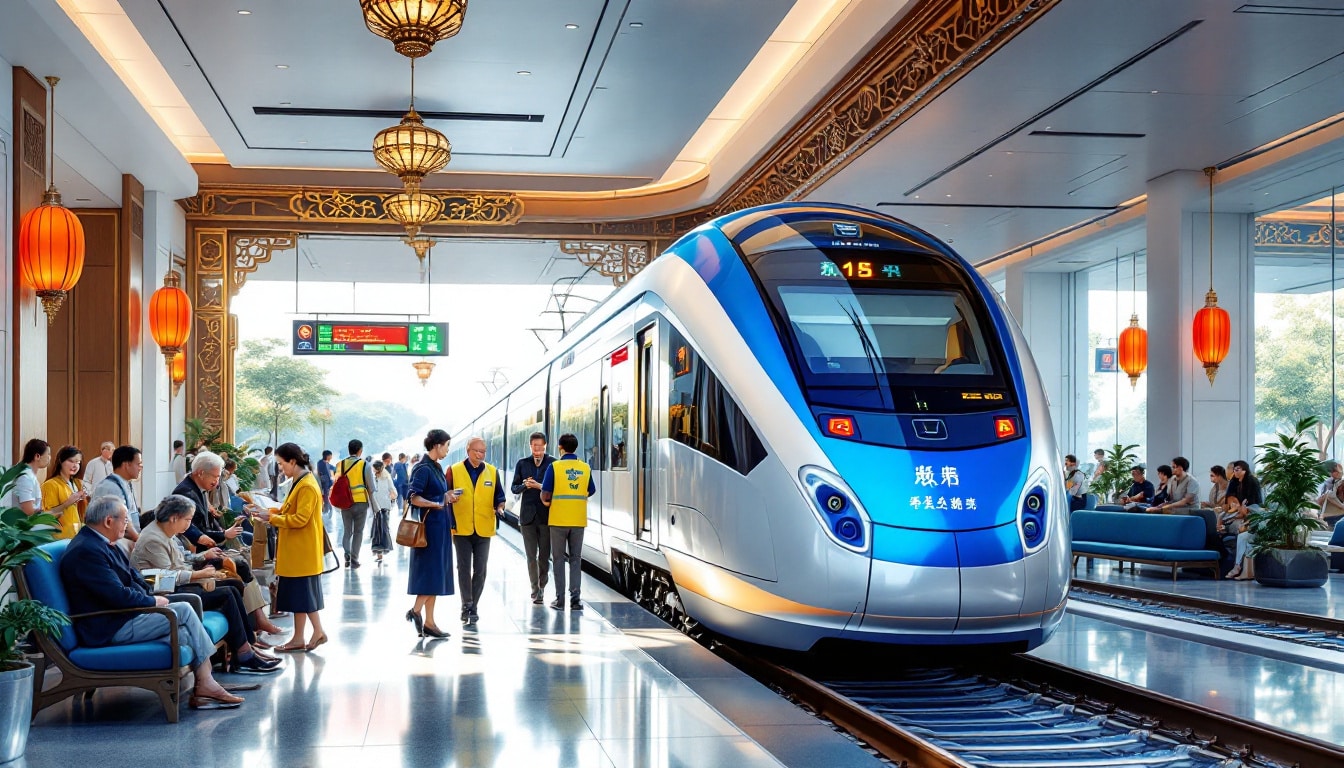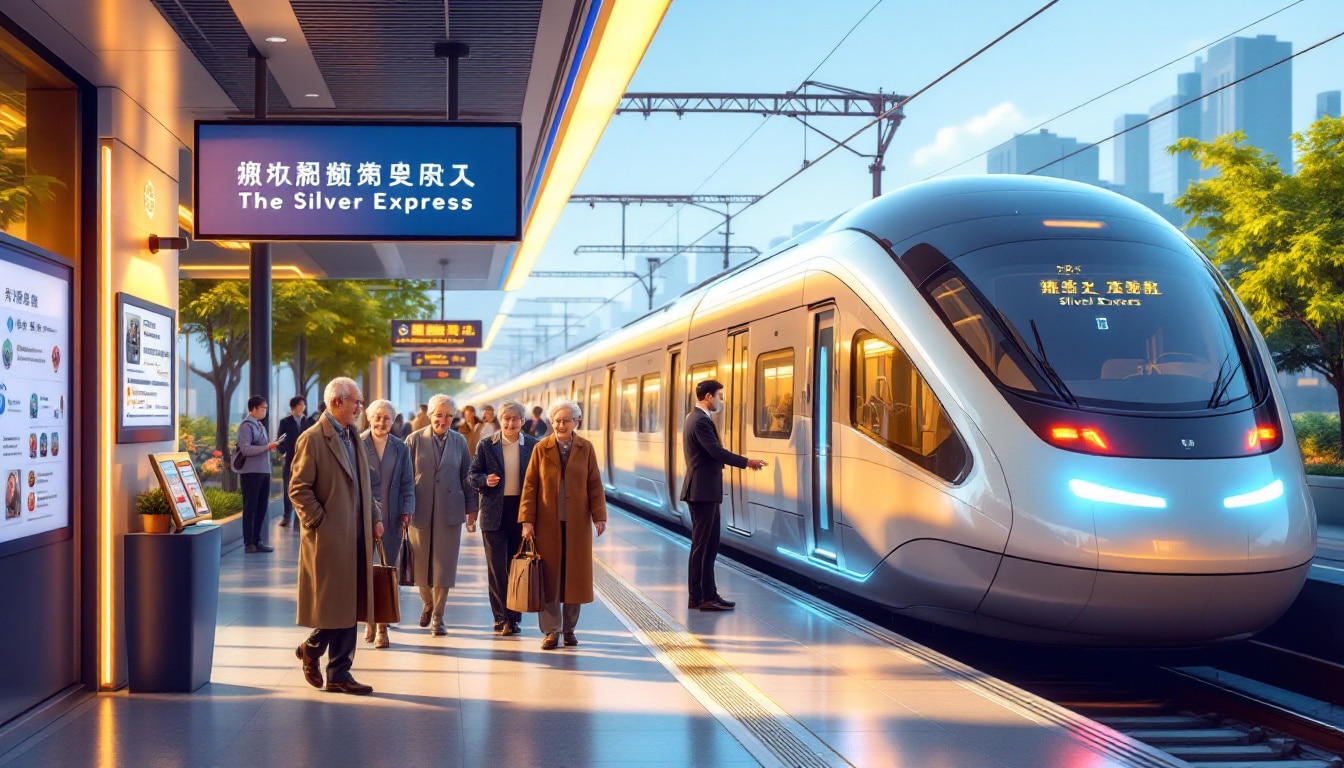China, facing a growing demographic challenge, is exploring innovative initiatives to support its aging population. After experimenting with blind dates and collective marriages to boost birth rates, it is now turning to an original approach: special trains designed to improve the quality of life for its seniors. This project revolves around thinking about suitable mobility solutions that could meet the specific needs of the elderly while providing a conducive environment for strengthening social ties.

Table des matières
ToggleAfter blind dates, China innovates with trains for seniors
In the face of the growing challenge of an aging population, China is exploring innovative solutions. In addition to previous initiatives like blind dates and collective marriages, the country is now considering deploying special trains designed to meet the needs of elderly individuals. These initiatives aim to improve the mobility of seniors, providing them with easier access to social, medical, and recreational services. With a senior population expected to reach record numbers in the coming years, this approach reflects the adaptability of Chinese infrastructure to a changing demographics.
Trains tailored to the needs of the elderly
These special trains will be equipped with specific devices to enhance the comfort and safety of passengers. Adapted seating, accompanied by assistance services, will enable seniors to travel with peace of mind. Furthermore, trained staff will be available to address the needs of elderly travelers, thus ensuring inclusive service. This initiative is part of a broader effort to maintain the independence of seniors while promoting social interaction and integration into society.
A project with long-term benefits
This project for trains for the elderly is not limited to mobility alone. It also represents a considerable economic opportunity for the transport sector. By attracting more senior travelers, China could see an increase in economic spending in this sector. This dynamic will also help support specialized services, thereby contributing to the flourishing of the silver economy in the country.
Innovative solutions for an aging population
Facing a growing demographic challenge, China is implementing innovative initiatives to support its aging population. After experimenting with programs like blind dates and collective marriages to encourage couples to start families, Chinese officials are now exploring the idea of special trains for seniors. These trains would be designed to facilitate the travel of elderly individuals, providing them with greater mobility in their daily lives.
This project highlights the importance of creating infrastructure that meets the specific needs of older adults. Indeed, with a growing elderly population that will continue to rise in the coming years, it is essential to adapt transportation services to ensure access and safety for the elderly. Special trains could include amenities such as reserved spaces, dedicated assistants, and onboard services that facilitate travel for this age group.
Moreover, this initiative aligns with a set of measures aimed at encouraging an active and autonomous lifestyle among seniors. By providing a tailored transportation solution, China aims not only to enhance the quality of life for elderly individuals but also to encourage them to participate more actively in social life. These measures could reduce seniors’ reliance on their families and promote harmonious integration into society.
Thus, while the issue of birth rates remains crucial, it is equally vital to ensure the well-being of the elderly, and the special trains illustrate this desire to adapt transportation culture to tomorrow’s demographic realities. The combination of these initiatives reflects a proactive approach to address future challenges, while emphasizing the importance of sustainability and innovation in the proposed solutions.








